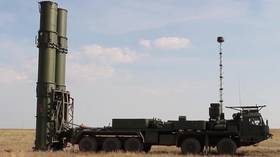‘Nothing speculative about it’: Wikimedia-led lawsuit against NSA restored by court

A federal appeals court has revived part of a lawsuit against the National Security Agency filed by the operators of Wikipedia. The Wikimedia Foundation alleged in 2015 that it was the target of NSA spying, but the suit was dismissed later that year.
On Tuesday, by a 3-0 vote, a panel with the US Court of Appeals for the Fourth Circuit reversed a lower court judge's October 2015 dismissal of claims made by Wikimedia Foundation that alleged it was impacted by bulk data collection of the the NSA's Upstream surveillance programs.
Rejecting the lower court's ruling that the suit's claims were "speculative," the appeals panel said it would allow to go forward Wikimedia's challenge based on violations of the First (free speech) and Fourth (protection against unreasonable searches and seizures) Amendments of the US Constitution.
Victory! Fourth Circuit permits @Wikimedia's challenge to NSA Upstream surveillance to go forward: https://t.co/VvJuzKKIXCpic.twitter.com/d3BpLsJ2l2
— Patrick Toomey (@PatrickCToomey) May 23, 2017
"The allegation that the NSA is intercepting and copying communications suffices to show an invasion of a legally protected interest," Circuit Judge Albert Diaz wrote in the panel's decision. "Indeed, there's nothing speculative about it."
1. Here's a quick thread on this morning's major 4th Cir standing ruling in @Wikimedia "upstream" surveillance suit: https://t.co/MvlG1ib98F
— Steve Vladeck (@steve_vladeck) May 23, 2017
Wikimedia filed the lawsuit with eight other groups in March 2015, accusing the NSA – amid its global spying operations, particularly its Upstream collection programs first revealed by Edward Snowden in 2013 – of violating privacy rights, requiring internet users worldwide to think twice before sharing sensitive information.
On reading: Wikimedia's argument is found persuasive because of the volume of traffic, and the resulting high likelihood of surveillance.
— Luis Villa (@luis_in_140) May 23, 2017
In the complaint, the groups said NSA Upstream data collection is conducted by connecting surveillance devices to multiple major internet cables, switches, and routers that are used to move internet traffic across the United States. With the assistance of telecommunications providers, the NSA intercepts a wide variety of internet communications – including emails, instant messages, webpages, voice calls, and video chats.
"We have proof that it's actually impacting us from the Snowden documents. Wikipedia was specifically targeted for upstream surveillance," Wikipedia co-founder Jimmy Wales said when the suit was filed.
In October 2015, however, US District Judge Richard D. Bennett ruled in favor of the NSA, concluding that there was not enough evidence to “plausibly establish that the NSA is using upstream surveillance" against Wikimedia and the other plaintiffs.
Bennett described Wikimedia's arguments as "unpersuasive," "incomplete," and "riddled with assumptions."
The decision echoed the Supreme Court's 2013 Clapper v. Amnesty International ruling, which also found that the plaintiff could not prove it was under NSA surveillance.
The other groups involved in the Wikimedia lawsuit include Amnesty International USA, the National Association of Criminal Defense Lawyers, Human Rights Watch, the PEN American Center, the Global Fund for Women, The Nation magazine, the Rutherford Institute and the Washington Office of Latin America.
In a separate ruling on Tuesday, the same appeals court panel voted 2-1 to uphold the previous dismissal of claims made by the eight other groups, according to Reuters. Those groups do not have standing in their claims that the NSA collected their communications, the panel's majority said.
The groups have been represented by the American Civil Liberties Union (ACLU). Neither the ACLU nor the US Department of Justice has commented on the appeals court's ruling, Reuters reported.















